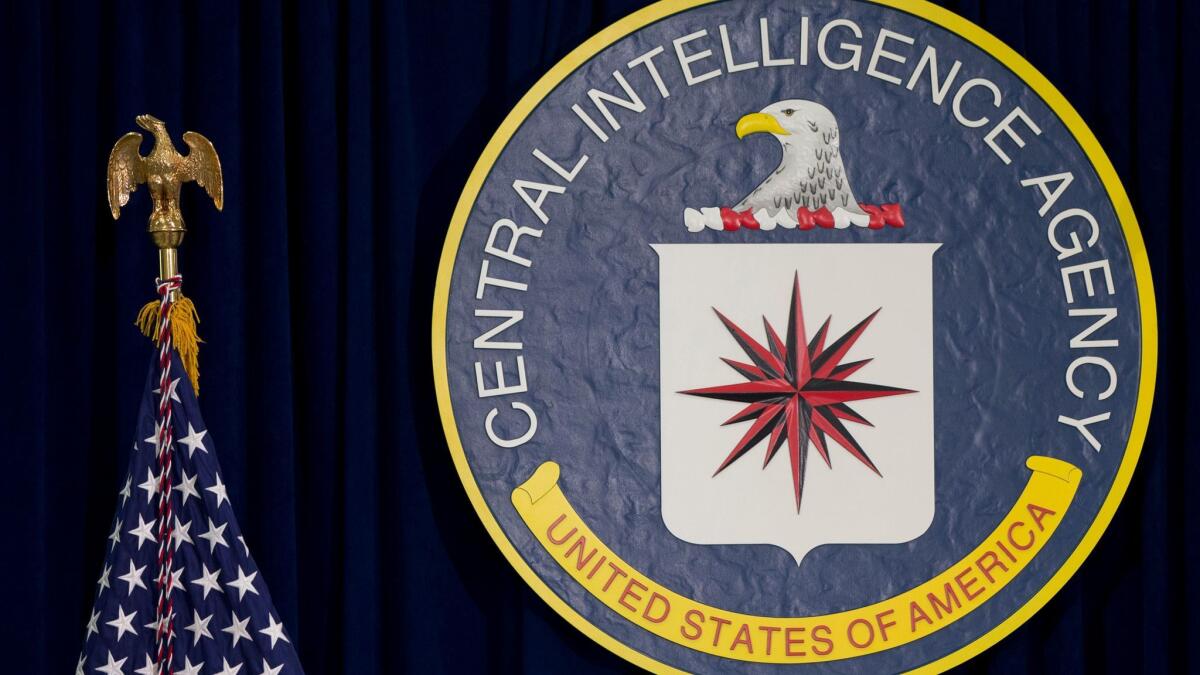Suit against 2 psychologists over harsh CIA interrogations appears headed for trial

- Share via
Reporting from SEATTLE — A lawsuit brought by former detainees held at CIA black-site prisons overseas will indeed go to trial — the first such proceeding in the post-Sept. 11 era and one that aims to hold two civilian psychologists responsible for helping to develop harsh interrogation techniques.
The government and attorneys for the two psychologists have attempted to halt the trial, and even the federal judge hearing the case, Justin Quackenbush, urged the plaintiffs and defendants to consider a settlement instead.
“If you want to go on and try this case before a jury, you may,” he told attorneys for the ex-detainees, who are suing for unspecified monetary damages.
“But I caution you,” Quackenbush added, the litigants and the CIA, which has been an interested party in the case, would be better off to “sit down and reach a reasonable conclusion.”
The litigants were unmoved, and on Friday, after almost three hours of arguments in the last of a series of pretrial hearings, Quackenbush decided the historic case was trial-ready. The hearing was held in Spokane, Wash., with audio of the proceedings carried on a call-in telephone line.
Though earlier attempts by others to sue the CIA for alleged torture were derailed by the government’s claim of threats to national security, a partially released Senate report in 2014 exposed much of the history of renditions and harsh interrogation methods, and the CIA agreed to comply with most document requests in this case.
The American Civil Liberties Union brought the suit on behalf of Suleiman Abdullah Salim, a Tanzanian fisherman abducted by the CIA in Somalia in 2003, allegedly tortured, and released five years later with a document stating he posed no threat to the United States.
Another ACLU plaintiff, Mohammed Ahmed Ben Soud, a Libyan also abducted in 2003, was tortured in Afghanistan, then rendered to Libya and held by authorities there after the Kadafi regime was overthrown.
The ACLU also represents the Afghan family of Gul Rahman, who was abducted and died after two weeks in CIA custody, chained up, in diapers, and suffering from hypothermia. Rahman was held at a facility in Afghanistan called Cobalt prison, also known as the “Salt Pit.”
The defendants, former Air Force psychologists James Mitchell and John “Bruce” Jessen, were hired after Sept. 11 by the CIA to design a program of “enhanced interrogation” techniques used to force terrorism suspects to give up useful intelligence.
Their “war on terror” methods included waterboarding, beatings, forced rectal “feeding” and experiments with glaring lights and incessant music. The aim was to break the will of uncooperative prisoners.
Mitchell and Jessen earned $81 million through a series of government contracts from 2003 until President Obama ended the arrangement, and torture tactics, in 2009. The pair contended that because they were contractors, the ultimate blame for any failures belonged to their employer, the CIA.
In court, the psychologists’ attorneys argued that their clients couldn’t be held responsible for simply doing “business with the CIA pursuant to their contracts.” In a last-ditch effort Friday to get the case dismissed, the defendants compared their situation to that of World War II manufacturers who supplied the Nazis with poison gas, and who later argued they weren’t responsible for how the gas was used.
ACLU attorney Dror Ladin thought the comparison was a stretch, and noted that the postwar Nuremberg tribunals found that private contractors were in fact responsible if they chose to provide “unlawful means” that allowed them to profit from war crimes.
“In the same case that Mitchell and Jessen cite,” Ladin said, “the military tribunal found the owner of a chemical company that sold Zyklon B to the Nazis guilty, even though only the Nazis had final say on which prisoners would be gassed.”
Barring a settlement, the trial is slated to begin Sept. 5.
Anderson is a special correspondent.
ALSO
Lawyers believe Mississippi man shot by police was executed
Mother pleads with police at fatal Chicago shooting: ‘I need to touch my son’
More to Read
Sign up for Essential California
The most important California stories and recommendations in your inbox every morning.
You may occasionally receive promotional content from the Los Angeles Times.










